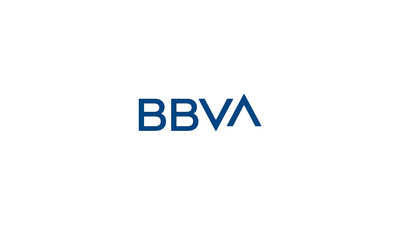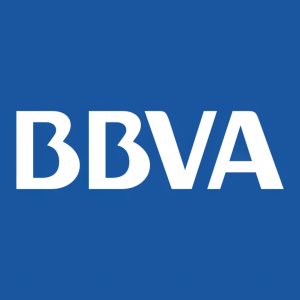BBVA Research publishes economic analysis: Strong November labor market report amid rising uncertainty
BBVA Research's latest economic analysis reveals a significant drop in the U.S. unemployment rate to 6.9% in October from 7.9% in September, driven by strong job gains, especially in the leisure and hospitality sector. However, employment remains 3.5 million below pre-pandemic levels. The analysis projects continued improvement in labor market conditions, though risks persist due to rising COVID-19 cases and economic uncertainties surrounding the 2020 election. Weekly earnings showed a 0.4% monthly increase, suggesting resilience in the job market.
- Unemployment rate dropped to 6.9% in October from 7.9% in September.
- Job gains in leisure and hospitality sector reached 271,000.
- 58% of pandemic-related job losses in leisure and hospitality have been recovered.
- Weekly earnings increased by 0.4%, representing a 4.7% year-over-year rise.
- Employment remains 3.5 million below pre-pandemic levels.
- Risks of labor market backsliding increase due to high COVID-19 cases and lack of fiscal support.
Insights
Analyzing...
HOUSTON, Nov. 12, 2020 /PRNewswire/ -- After showing signs of slowing in September, the unemployment rate plunged to 6.9 percent in October, down from 7.9 percent, driven by disproportionately higher job gains in the household employment survey, according to the latest economic analysis from the BBVA Research team.
Industry-level job gains continue to be concentrated in the service sector with nonfarm payrolls increasing 271,000 in leisure and hospitality. According to the analysis, 58 percent of jobs lost to the pandemic in leisure and hospitality have come back. However, employment remains 3.5 million below pre-pandemic levels. Other substantial gains occurred in professional business services, retail trade and healthcare and social assistance. The report further noted that improvement in economic activity and housing demand have pushed up construction, transportation and warehousing, and manufacturing employment over-the-month.
The analysis, co-authored by BBVA Chief Economist Nathaniel Karp and Senior Economist Boyd Nash-Stacey, highlights the reverse in weekly hours declines from previous months, with all major industries except education and healthcare reporting a gain. Likewise, weekly earnings posted a solid 0.4 percent monthly gain, implying a 4.7 percent increase in the last 12 months.
The report asserts that the employment report suggests labor market conditions will continue to improve, albeit at a slower pace. While the team's baseline assumes more modest gains in the labor market going forward, the larger-than expected drop in the unemployment rate suggests that it could fall below our current baseline of
That being said, the risk balance is tilted to the downside with an alarmingly high number of new Covid-19 cases, along with new lockdown measures abroad and the massive amount of uncertainty associated with the 2020 election, which could remain unresolved for some time. Rising COVID-19 case numbers may also increase the propensities of individuals to distance, regardless of whether there are compulsory lockdown measures. Without additional fiscal support, the analysis indicates that the risks of the labor market backsliding in the 4Q20 will continue to grow.
BBVA USA's research team analyzes the U.S. economy and Federal Reserve monetary policy. For its analyses, the economists create models and forecasts for growth, inflation, monetary policy and industries. The Economic Research team also follows a variety of issues that affect the Sunbelt states where BBVA USA operates. Follow their work on Twitter @BBVAResearch and @BBVANews_USA.
Read the full report here.
See the complete library of BBVA Research publications here.
For more BBVA news visit, www.bbva.com and the U.S. Newsroom.
Additional news updates can be found via Twitter and Instagram.
For more financial information about BBVA in the U.S., visit bbvausa.investorroom.com.
About BBVA
BBVA Group
BBVA (NYSE: BBVA) is a customer-centric global financial services group founded in 1857. The Group has a strong leadership position in the Spanish market, is the largest financial institution in Mexico, it has leading franchises in South America and the Sunbelt Region of the United States. It is also the leading shareholder in Turkey's Garanti BBVA. Its purpose is to bring the age of opportunities to everyone, based on our customers' real needs: provide the best solutions, helping them make the best financial decisions, through an easy and convenient experience. The institution rests in solid values: Customer comes first, we think big and we are one team. Its responsible banking model aspires to achieve a more inclusive and sustainable society.
BBVA USA
In the U.S., BBVA is a Sunbelt-based financial institution that operates 641 branches, including 330 in Texas, 89 in Alabama, 63 in Arizona, 61 in California, 44 in Florida, 37 in Colorado and 17 in New Mexico. The bank ranks among the top 25 largest U.S. commercial banks based on deposit market share and ranks among the largest banks in Alabama (2nd), Texas (4th) and Arizona (6th). In the U.S., BBVA has been recognized as one of the leading small business lenders by the Small Business Administration (SBA) and ranked 8th nationally in terms of dollar volume of SBA loans originated in fiscal year 2018.
![]() View original content to download multimedia:http://www.prnewswire.com/news-releases/bbva-research-publishes-economic-analysis-strong-november-labor-market-report-amid-rising-uncertainty-301172306.html
View original content to download multimedia:http://www.prnewswire.com/news-releases/bbva-research-publishes-economic-analysis-strong-november-labor-market-report-amid-rising-uncertainty-301172306.html
SOURCE BBVA USA








